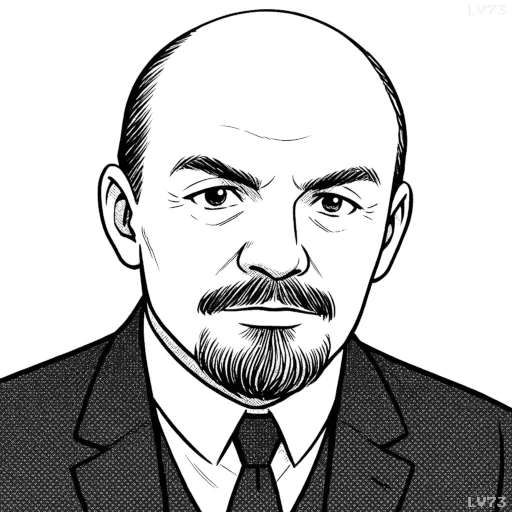“A revolution is impossible without a revolutionary situation; furthermore, not every revolutionary situation leads to revolution.”

- April 22, 1870 – January 21, 1924
- Born in the Russian Empire
- Revolutionary, political theorist, lawyer, state leader
table of contents
Quote
“A revolution is impossible without a revolutionary situation; furthermore, not every revolutionary situation leads to revolution.”
Explanation
This quote emphasizes Lenin’s belief that revolutions are not simply the result of widespread discontent but require a particular historical and political context — what he refers to as a “revolutionary situation”. According to Lenin, a revolutionary situation occurs when the existing order is unstable, typically due to a combination of economic crisis, political corruption, and social unrest. However, the existence of such a situation does not automatically guarantee revolution. For a revolution to happen, there must also be a politically conscious and organized revolutionary force capable of seizing the moment and leading the masses to action.
Historically, this idea was critical to Lenin’s strategy in the Russian Revolution. In the early 20th century, Russia experienced many revolutionary situations, including the 1905 Revolution and the 1917 February Revolution. However, while these moments of unrest demonstrated widespread dissatisfaction, they did not immediately lead to a successful revolution. It was only after the Bolsheviks, under Lenin’s leadership, developed a clear revolutionary strategy, capitalized on the weaknesses of the Provisional Government, and galvanized the masses that the October Revolution succeeded. Lenin understood that revolutionary situations are fleeting, and that without decisive action and the proper leadership, such situations can pass without transforming society.
In modern contexts, this quote serves as a reminder that revolutionary change requires more than just crisis. For example, in situations of economic collapse, political corruption, or social dissatisfaction today, such unrest alone may not be enough to spark meaningful change. A successful revolution, in Lenin’s terms, requires organized leadership, strategic planning, and mass mobilization, elements that are often lacking despite widespread dissatisfaction. The quote highlights the need for clear political direction and revolutionary consciousness among those seeking change, suggesting that while revolutionary potential exists in times of crisis, it takes more than just a crisis to ignite revolution.
Would you like to share your impressions or related stories about this quote in the comments section?
